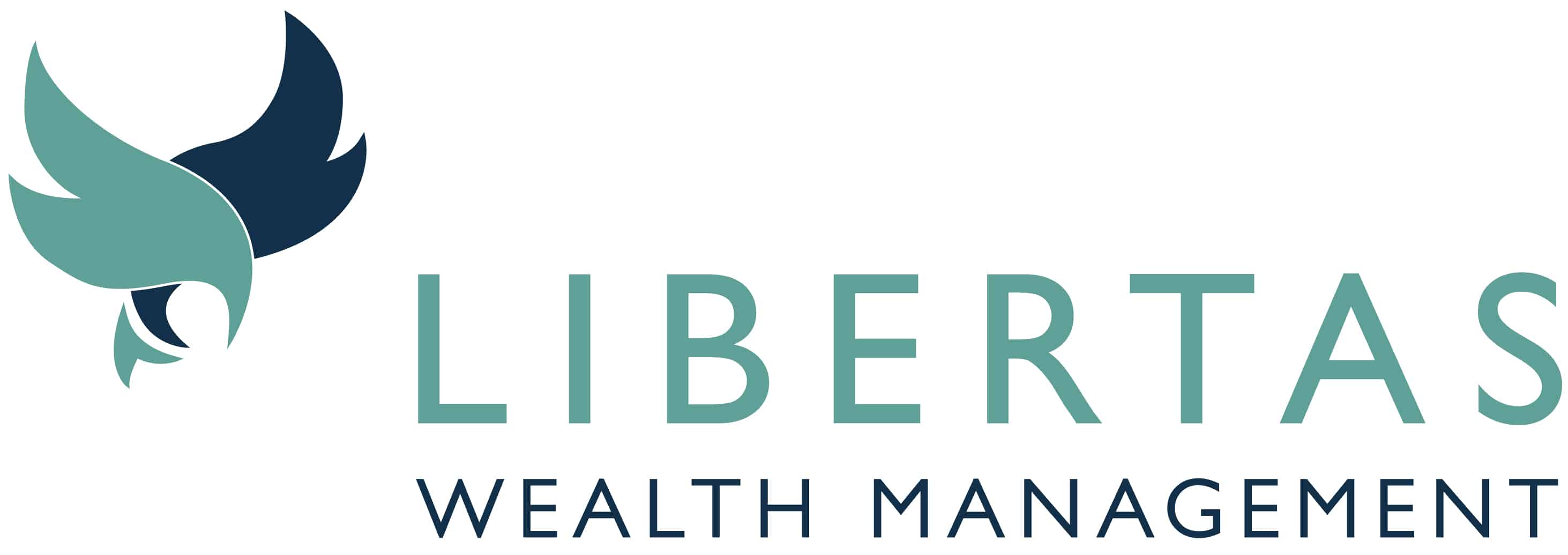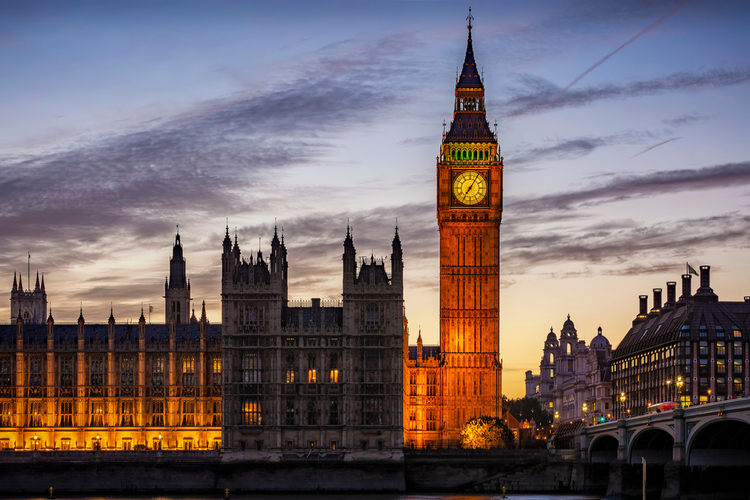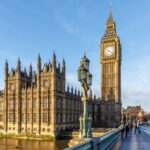7 historic houses to visit during Easter
by Phil Clerkin on March 7, 20247 reliable ways to boost your energy levels
by Phil Clerkin on March 7, 2024Financial stress costs UK businesses £10.3 billion a year. Could financial advice help your firm?
by Phil Clerkin on March 7, 2024More than 1 million investors are expected to pay Dividend Tax for the first time in 2024/25
by Phil Clerkin on March 7, 2024Are you risking a pension shortfall by overlooking longevity?
by Phil Clerkin on March 7, 2024Your Spring Budget update – the key news from the chancellor’s statement
by Phil Clerkin on March 6, 2024The 2024/25 tax year is just a month away, and chancellor Jeremy Hunt has delivered his 2024 Spring Budget, outlining the government’s plans for the next fiscal year and beyond.
With a general election looming – prime minister Rishi Sunak has said he will call it before the end of the year – the chancellor claimed that the government had met the prime minister’s three economic priorities laid out at the start of 2023, having:
- Halved inflation, down from highs of 11% last year to 4% in January 2024
- Kept debt falling in line with fiscal rules
- Grown the economy, fully 1.5 percentage points higher than expected.
Amid this backdrop, the chancellor called this a “Budget for long-term growth”, with goals to “deliver more jobs, better public services, and lower taxes”.
Read on for a summary of some of the key measures and announcements from this year’s Spring Budget, and what they might mean for you.
National Insurance will be reduced by another 2%
Arguably the biggest announcement from the chancellor’s Budget this year is that the main rate of Class 1 National Insurance contributions (NICs) will be reduced by a further 2%.
During the Autumn Statement in November 2023, the chancellor reduced the main National Insurance rate by two percentage points, falling from 12% to 10% from 6 January 2024.
Now, this main rate will fall a further two percentage points to 8%. Meanwhile, the main rate of Class 4 self-employed NICs will fall to 6%. Both changes will take place from 6 April 2024.
According to the OBR, an employed individual with average earnings of £35,400 will save £450 a year thanks to this cut, and £900 when including the previous cut in November 2023.
Furthermore, there will be no further requirement to pay Class 2 NICs from 6 April 2024, as outlined in the 2023 Autumn Statement.
However, offsetting these tax cuts is the news that the Income Tax Personal Allowance and tax bands will remain frozen until 2028.
As wage inflation increases, this could see many taxpayers pulled into a higher tax band over the next four years, an effect known as “fiscal drag”.
The High Income Child Benefit Charge will be reformed
Having been a contentious issue for some time, the chancellor confirmed reforms to the High Income Child Benefit Charge.
This tax taper effectively reduces the amount received from Child Benefit for those earning £50,000 or more. Those earning £60,000 or more must repay all Child Benefit or opt out from payments entirely.
Crucially, this rule only applies to one higher earner per household. So, a household with one person earning £55,000 and the other £10,000 would be affected by the charge, while two people each earning £49,000 would not be affected at all.
So, by April 2026, the government will introduce a household income charge, assessing both earners’ income against the threshold, rather than just an individual higher earner’s.
Furthermore, from 6 April 2024, the £50,000 threshold will be raised to £60,000, and the top taper to £80,000. According to the government, this will see half a million families gain an average of £1,260 in 2024/25.
The higher-rate Capital Gains Tax charge for residential property transactions will be reduced
To promote the housing market and encourage more property transactions, the chancellor announced a reduction in the higher rate of Capital Gains Tax (CGT) for gains on residential property, excluding main residences.
Under the current rules, the standard higher CGT rate is 20%, with an additional 8% charged on residential property transactions. This will be reduced from 28% to 24% from 6 April 2024, encouraging landlords and second-home owners to sell their properties, with the aim of increasing the housing supply for first-time buyers in particular.
The 18% charge for gains made in the lower rate band will remain unchanged.
On top of this, the chancellor also abolished the Furnished Holiday Lettings (FHL) tax regime, removing an incentive for landlords to offer short-term holiday lets rather than long-term residential lets, and Multiple Dwellings Relief, a bulk purchase relief in the Stamp Duty regime.
Changes to how and where pension funds are invested
As part of the chancellor’s goal to channel more capital into UK equity markets, the government is working alongside The Pensions Regulator (TPR) and Financial Conduct Authority (FCA) on the “Value for Money” pensions framework to “ensure better value from defined contribution (DC) pensions, by judging performance on overall returns, not cost”.
This looks to address where pension schemes prioritise short-term cost savings at the expense of long-term outcomes, as well as where savers may be prevented from receiving value because of a scheme’s current scale.
The FCA and TPR will have full regulatory powers to close schemes from new employer entrants or wind them up entirely if the schemes are “consistently offering poor outcomes for savers”.
The government will also seek to work with the FCA to increase UK equity allocations in DC pensions, asking pension funds to publicly disclose where this money is invested. These requirements will also extend to Local Government Pension Scheme funds.
Furthermore, the chancellor confirmed the government’s commitment to exploring a lifetime provider model for DC pensions, previously referred to as the “pot for life” in the 2023 Autumn Statement.
This would give pension savers the right to choose the pension scheme that their employer pays into, rather than being auto-enrolled into a scheme chosen by the employer.
Investments in UK-focused assets will be encouraged with the new “UK ISA”
As well as expanding pension investments into British businesses, the chancellor intends to create a new UK ISA, offering an additional tax-efficient allowance of £5,000 for investment in UK-focused assets. This is another move that aims to channel more investment into UK equities.
This will be on top of the existing ISA allowance, which remains at £20,000 for the 2024/25 tax year.
Other key changes
Fuel and alcohol duty remain frozen
Fuel duty will remain frozen for another 12 months instead of increasing in line with inflation, and the 5p cut to fuel duty, originally set to expire on 23 March, has been extended for a further 12 months. Government figures claim that this tax cut will save an average car driver £50 in 2024/25.
Meanwhile, the alcohol duty freeze will be extended until February 2025, benefiting 38,000 pubs across the UK.
Tax rises will bolster the government’s coffers
While this Budget has seen many tax cuts, the chancellor also announced measures that will see certain taxes increase.
Firstly, the government is abolishing the current tax system for UK non-doms, and replacing it with a “simpler and fairer” residence-based system.
From 6 April 2025, anyone who has been resident in the UK for more than four years will pay UK tax on any foreign income and gains, provided they have been non-tax resident for the last 10 years. In 2028/29, this will raise £2.7 billion. There will be transitional arrangements for those who have already benefited from the previous system.
There will also be a new levy on vaping products from October 2026, raising £445 million in 2028/29. Meanwhile, to encourage vaping over smoking, tobacco duty will also increase in October 2026, raising a further £170 million in 2028/29.
Household support fund extended
There will be an extra £500 million to extend the Household Support Fund in England from April to September 2024. This fund provides support with essentials such as food and utilities to vulnerable households.
Full business expensing extended, and increased to VAT thresholds
After initially making full business expensing permanent in November 2023, the chancellor announced plans to extend this to leased assets, when fiscal conditions allow for it. Draft legislation is to follow.
Furthermore, the chancellor increased the VAT registration threshold for small businesses from £85,000 to £90,000, and the deregistration threshold from £83,000 to £88,000 from 1 April. These thresholds are frozen at these levels.
Get in touch
If you have any questions about how the Spring Budget will affect you and your finances, please get in touch.
All information is from the Spring Budget documents on this page.
The content of this Spring Budget summary is intended for general information purposes only. The content should not be relied upon in its entirety and shall not be deemed to be or constitute advice.
While we believe this interpretation to be correct, it cannot be guaranteed and we cannot accept any responsibility for any action taken or refrained from being taken as a result of the information contained within this summary. Please obtain professional advice before entering into or altering any new arrangement.
read moreAll the winners and losers from the 2024 Spring Budget
by Phil Clerkin on March 6, 2024With one eye on a forthcoming general election, the chancellor has announced a Budget aimed at generating long-term growth, with “more investment, more jobs, better public services and lower taxes”.
While the headlines will inevitably focus on Jeremy Hunt’s cut in National Insurance contributions (NICs), many less headline-grabbing messages will affect millions of families and businesses.
Read on to find out who were the winners and losers from the 2024 Spring Budget.
Winners
Working people
The chancellor said that his Budget gave “much-needed help in challenging times”, adding “if we want to encourage hard work, we should let people keep as much of their own money as possible”.
Calling NICs a “penalty on work”, Hunt announced a cut in Class 1 NICs, from 10% to 8% from 6 April 2024. These cuts follow a similar reduction in the rate of NICs announced in the 2023 Autumn Statement.
The chancellor says that these cuts, in conjunction with the reductions announced in the 2023 Autumn Statement, would mean the average worker on £35,400 would benefit from a tax cut of more than £900 a year.
He also announced that, instead of falling from 9% to 8% as previously announced, Class 4 self-employed NICs would fall from 9% to 6% from 6 April 2024. This is in addition to the removal of the requirement to pay Class 2 NICs from the same date.
He added that 2 million self-employed people would benefit, with the average self-employed person earning £28,000 seeing a tax cut of around £650 a year.
The Treasury say that this means UK taxpayers face the lowest combined basic rate of Income Tax and NICs since the introduction of the modern structure of National Insurance in 1975.
Parents earning Child Benefit
The chancellor highlighted the “unfairness” in the current Child Benefit system that means a household with two parents each earning £49,000 a year will receive Child Benefit in full, while a household earning less overall but with one parent earning more than £50,000 will see some or all of the benefit withdrawn.
Consequently, he announced a plan to move the High Income Child Benefit Charge to a “household” system from April 2026.
In the interim, from April 2024, the High Income Child Benefit Charge threshold will rise from £50,000 to £60,000 while the top of the taper will rise to £80,000. This means that the full amount of Child Benefit will not be withdrawn until individuals earn £80,000 or more.
The government estimates that nearly 500,000 families will gain an average of £1,260 in 2024/25 as a result.
The hospitality industry and their customers
In a move designed for “backing the Great British pub”, the chancellor has extended the freeze on alcohol duty. The freeze was due to end in August 2024 but has been extended to February 2025, benefiting 38,000 pubs across the UK.
The Treasury says that this results in 2p less duty on an average pint of beer than if the planned increase had gone ahead.
This measure will cut costs for breweries, distilleries, restaurants, nightclubs, pubs, and bars.
Motorists
The chancellor argued that lots of families and sole traders depend on their cars and so wanted to continue supporting motorists.
Consequently, he maintained the temporary 5p cut in fuel duty and froze the duty for another 12 months.
Hunt said that this would save the average car driver £50 in 2024/25.
Small businesses
In a boost to small businesses, Hunt announced that, from 1 April 2024, the VAT threshold would increase from £85,000 to £90,000 – the first increase in seven years.
ISA and National Savings and Investments savers
To encourage investment in small British businesses, the chancellor announced his intention to launch a new “UK ISA”.
This will enable savers to invest an additional £5,000 in a tax-efficient wrapper, increasing the total ISA subscription limit to £25,000 – assuming these additional monies are invested exclusively in UK firms.
The government will consult on the details.
The chancellor also announced that National Savings & Investments (NS&I) will launch a British Savings Bonds product that will offer consumers a guaranteed interest rate, fixed for three years.
This new NS&I product will be brought on sale in early April 2024.
Creative industries
From film to theatre and music to art, UK creative excellence is unmatched.
To support the UK’s creative industries, the chancellor announced a further £1 billion package of additional tax relief over the next five years, to boost inward investment and attract production companies from around the world.
Hunt also confirmed £26.4 million of support for the globally renowned National Theatre.
Pensioners
The Spring Budget also committed to supporting pensioner incomes by maintaining the State Pension “triple lock”.
In 2024/25, the Treasury say that the full yearly amount of the basic State Pension will be £3,700 higher, in cash terms, than in 2010.
Sellers of second homes
Capital Gains Tax (CGT) is often due when an individual sells a second home – such as a buy-to-let property or holiday home.
In a move designed to increase the number of transactions, and consequently increase the revenue from the tax, the chancellor announced he would reduce the higher rate of property CGT from 28% to 24%.
The lower rate will remain at 18% for any gains that fall within an individual’s basic-rate band.
Losers
Vapers and smokers
In an attempt to discourage non-smokers from taking up vaping, and to increase revenue for the NHS, the chancellor announced a new duty on vaping.
The Treasury says this will raise £445 million in 2028/29.
There will also be a one-off tobacco duty increase of £2 per 100 cigarettes or 50 grams of tobacco from 1 October 2026 to maintain the current financial incentive to choose vaping over smoking. The government say this will raise a further £170 million in 2028/29.
Non-economy airline passengers
The chancellor announced that rates for individuals flying premium economy, business, and first class and for private jet passengers will increase by forecast Retail Prices Index (RPI) and will be further adjusted for recent high inflation to help maintain their real-terms value.
Some “non-doms”
In a move borrowed from Labour, the chancellor announced the abolition of the “remittance basis” of taxation for non-UK domiciled individuals (“non-doms”) and a replacement simpler residence-based regime.
Individuals who opt into the new regime will not pay UK tax on any foreign income and gains arising in their first four years of tax residence, provided they have been non-tax resident for the last 10 years.
This new regime will commence on 6 April 2025 and applies UK-wide – and transitional arrangements will apply.
The Treasury says that this measure will raise £2.7 billion in the year 2028/29.
Owners of holiday lets
The chancellor said that the current tax regime creates distortion, meaning there are not enough properties available for long-term rental.
Consequently, he intends to abolish the Furnished Holiday Lettings (FHL) tax regime from 6 April 2025, meaning short-term and long-term lets will be treated the same for tax purposes.
Anyone subject to fiscal drag
Freezing tax thresholds increases the amount of tax that individuals and businesses pay without nominal tax rates actually increasing. Called “fiscal drag”, this results in additional revenue to the government as more taxpayers are “dragged” into paying tax, or into paying tax at a higher rate.
Freezes in a range of thresholds mean that millions of individuals and businesses will face “fiscal drag” in the coming years.
For example, while the increase in the threshold at which small businesses and self-employed people have to register for VAT will be welcome to many businesses, the fact that the threshold had been frozen for seven years means that more businesses will likely have been forced to register for VAT than if the threshold had risen each year in line with the cost of living.
Similarly, freezes to the Income Tax Personal Allowance and thresholds mean more people will either start to pay tax, or pay more tax at a higher rate, than if these thresholds had risen in line with inflation.
Get in touch
If you have any questions about whether you are a winner or a loser from the Spring Budget, and how it will affect you and your finances, please get in touch.
All information is from the Spring Budget document published by HM Treasury.
The content of this Spring Budget summary is intended for general information purposes only. The content should not be relied upon in its entirety and shall not be deemed to be or constitute advice.
While we believe this interpretation to be correct, it cannot be guaranteed and we cannot accept any responsibility for any action taken or refrained from being taken as a result of the information contained within this summary. Please obtain professional advice before entering into or altering any new arrangement.
read moreDisclaimer: The information provided in our website blogs is accurate and up-to-date at the time of writing. However, please be aware that legislative changes and updates may occur after the publication date, which could potentially impact the accuracy of the information provided. We encourage readers to verify the current status of laws, regulations, and guidelines relevant to their specific circumstances. We do not assume any responsibility for inaccuracies or omissions that may arise due to changes in legislation or other factors beyond our control.
If you would like any clarification, or have any questions, please get in touch.













